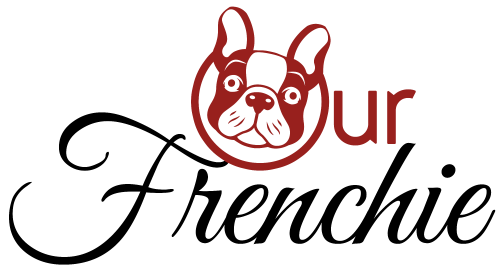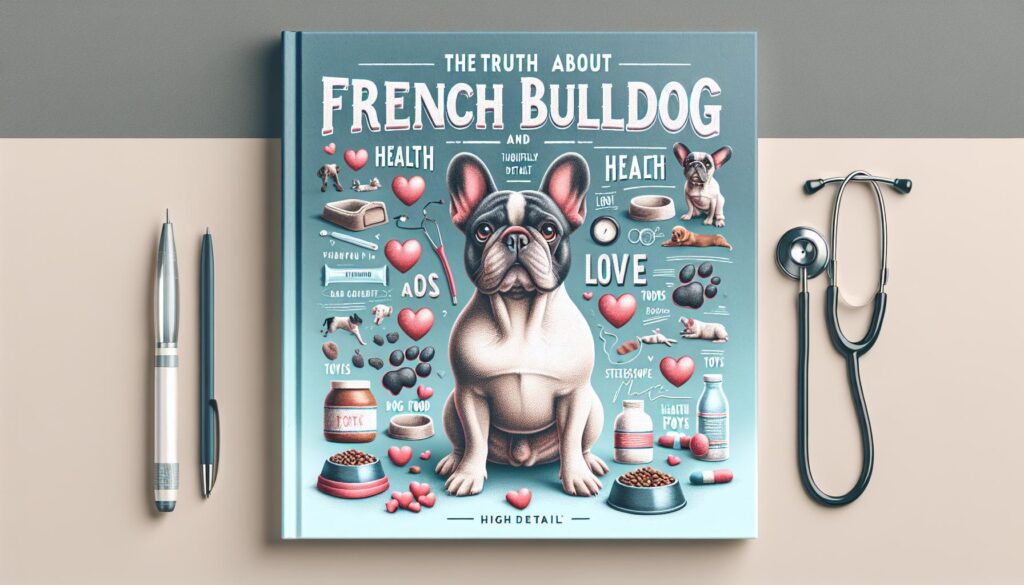About
The Truth About French Bulldog Lifespan and Health
Page Contents
French Bulldogs, with their charming bat-like ears and affectionate nature, have captured teh hearts of dog lovers worldwide. However, potential owners often overlook the realities of their health and lifespan. This article delves into the truth behind the life expectancy of French Bulldogs, examining the common health issues they face and offering insights into how to ensure a healthier, longer life for these beloved companions. Understanding these factors is crucial for anyone considering bringing a French Bulldog into their family, ensuring that they can provide the best care possible.
Understanding French Bulldog Lifespan
When it comes to the longevity of French Bulldogs, several factors can influence how long these charming companions might live. Typically, a healthy French Bulldog has a lifespan ranging from 10 to 12 years. However, with the right care and attention, some may even surpass this average, living up to 14 years or more.
To ensure your French Bulldog enjoys a long, healthy life, it is indeed crucial to understand the common health challenges they might face. These can include:
- Respiratory Issues: Due to their brachycephalic nature, French Bulldogs often experience breathing difficulties. Regular veterinary check-ups can definitely help manage these issues effectively.
- Skin Problems: Their skin folds can be prone to infections, so maintaining good hygiene is essential.
- Joint Concerns: Like many small breeds, they may suffer from joint problems such as hip dysplasia.
By providing a balanced diet, regular exercise, and routine veterinary care, you can significantly contribute to your French Bulldog’s quality of life, possibly extending their lifespan. Always stay informed about their specific needs to ensure they remain a happy and healthy part of your family for many years to come.
Common Health Issues in French Bulldogs
french Bulldogs,with their charming personalities and distinctive bat-like ears,are a beloved breed worldwide. However, their unique physical characteristics also predispose them to certain health issues. One of the most common concerns is their susceptibility to respiratory problems due to their brachycephalic nature. This means they have a short skull, which can lead to brachycephalic obstructive airway syndrome (BOAS).Symptoms may include noisy breathing, snorting, and in severe cases, difficulty exercising or overheating.
Another prevalent issue is their tendency to develop skin problems. French Bulldogs are prone to allergies, which can manifest as itchy skin, redness, or hot spots. Regular grooming and maintaining a clean habitat can help mitigate these issues, but it’s essential to consult a veterinarian for persistent conditions. Additionally, their skin folds require regular cleaning to prevent infections.
- **Hip Dysplasia**: A genetic condition that affects the hip joint, leading to arthritis or pain.
- **Intervertebral Disc Disease (IVDD)**: A spinal condition that can cause pain, nerve damage, or even paralysis.
- **eye Problems**: Conditions such as cherry eye, cataracts, and corneal ulcers are common and require veterinary attention.
Proactive health management, including regular vet visits and a balanced diet, can significantly enhance the quality and longevity of a French Bulldog’s life.understanding these health challenges allows owners to provide the best care for their furry companions.
Dietary Needs for Longevity
Ensuring your French Bulldog enjoys a long and healthy life begins with addressing their dietary needs. A balanced diet is crucial for maintaining their overall well-being and can significantly impact their lifespan.**High-quality protein** sources such as chicken,turkey,or fish should form the cornerstone of their meals,supporting muscle health and energy levels. additionally, incorporating a variety of vegetables and fruits can provide essential vitamins and minerals, while also promoting a healthy digestive system.
It’s crucial to be mindful of portion sizes to prevent obesity, a common issue in French Bulldogs that can lead to various health problems. **Monitor their weight** regularly and adjust their food intake as necessary. Consider these dietary tips for promoting longevity:
- Opt for **grain-free** or **limited ingredient** diets to reduce the risk of allergies and digestive issues.
- Incorporate **omega-3 fatty acids**, found in fish oil, to support joint health and a shiny coat.
- Provide **fresh, clean water** at all times to keep them well-hydrated.
consulting with a veterinarian can help tailor a diet plan specific to your French Bulldog’s needs, taking into account their age, weight, and activity level. By prioritizing nutrition, you’ll be laying the foundation for a longer, healthier life for your beloved companion.
Exercise Tips for a Healthy Bulldog
Exercise is vital for maintaining a healthy French Bulldog, but it’s important to tailor activities to their unique needs.These lovable companions are known for their playful demeanor,yet their brachycephalic (short-nosed) structure can make them prone to overheating.To ensure a safe and effective exercise routine, consider the following tips:
- Short and Sweet: Opt for multiple short walks or play sessions throughout the day rather than one long session.This approach helps to prevent overexertion and keeps your bulldog engaged without overwhelming them.
- Mind the Weather: French Bulldogs are sensitive to extreme temperatures. On hot days, exercise should be limited to early mornings or late evenings when it’s cooler. In colder weather, ensure your pup is warm enough before heading outdoors.
- Interactive Play: Engage your bulldog with interactive toys and games that stimulate both their body and mind.Tug-of-war, fetch with a soft toy, or puzzle games can provide mental stimulation and physical exercise.
Remember,the key is to balance activity with rest. Always monitor your French Bulldog for signs of fatigue or distress, such as heavy panting or reluctance to move. by following these guidelines, you’ll help ensure your furry friend remains healthy and happy throughout their life.
Preventative Care and Vet Visits
Ensuring a long and healthy life for your French Bulldog involves a commitment to regular veterinary care and preventative measures. **Routine vet visits** are crucial, as they allow for early detection of potential health issues and ensure that your dog is up-to-date with vaccinations. It’s recommended to schedule check-ups at least twice a year, even if your dog appears healthy. This proactive approach can help manage common breed-specific conditions such as brachycephalic airway syndrome and hip dysplasia.
In addition to regular vet visits,there are several preventative care steps you can take at home to support your French bulldog’s well-being:
- **Nutrition:** Provide a balanced diet tailored to their age,weight,and health needs.
- **Exercise:** Engage in moderate exercise to maintain a healthy weight without overexerting them.
- **Dental Care:** Regularly brush their teeth and provide dental treats to prevent periodontal disease.
- **Grooming:** Keep their skin folds clean and dry to avoid infections.
- **Parasite Control:** Use vet-recommended flea, tick, and worm preventatives.
by integrating these preventative measures into your routine,you can significantly enhance your French Bulldog’s quality of life and longevity. Remember, a proactive approach to health care not only addresses existing issues but also fortifies their overall well-being, helping them lead a happier, healthier life.
Genetic Factors Influencing Lifespan
French Bulldogs, like many purebred dogs, can inherit certain genetic traits that may significantly impact their lifespan. Understanding these genetic factors is crucial for potential owners who wish to ensure a long, healthy life for their pet.**Breeding practices** play a pivotal role in the genetic health of French Bulldogs. Responsible breeders focus on reducing the prevalence of hereditary conditions by carefully selecting parent dogs with healthy genetic backgrounds.
Some of the common genetic issues in French Bulldogs include:
- **Brachycephalic Obstructive Airway Syndrome (BOAS)**: Due to their flat faces, French Bulldogs are prone to breathing difficulties, which can affect their overall health and longevity.
- **Hip Dysplasia**: This is a genetic disorder where the hip joint doesn’t fit into the hip socket properly, leading to arthritis and mobility issues.
- **Intervertebral Disc Disease (IVDD)**: This condition affects the spine and can lead to pain, nerve damage, or even paralysis if not managed properly.
To mitigate these risks, it is advisable to seek breeders who conduct **health screenings** for these conditions. genetic testing and certifications from organizations like the Orthopedic Foundation for Animals (OFA) can provide assurance of a puppy’s health.Additionally, understanding the family history of the dog can offer insights into potential genetic predispositions, allowing owners to take preventive measures early on.By prioritizing genetic health, French Bulldog owners can help ensure their pets lead longer, healthier lives.
Signs of Aging in French Bulldogs
As French Bulldogs gracefully transition into their golden years, several signs of aging may become apparent. One of the most noticeable changes is a decrease in energy levels. Your once playful pup might become more inclined to nap or take leisurely strolls rather than engaging in vigorous play. While this is a natural part of aging, it’s important to ensure they still get regular, gentle exercise to maintain their overall health.
**Physical changes** are also common as French Bulldogs age. You may notice a graying of the muzzle, a softer coat, or even some weight fluctuations. Joint stiffness is another prevalent issue, frequently enough manifesting as difficulty in climbing stairs or reluctance to jump. To support their mobility, consider providing joint supplements or orthopedic bedding for added comfort.
- Reduced activity and playfulness
- Graying fur, especially around the face
- stiffness or limping, notably after resting
- Changes in appetite or weight
- Increased sleep or changes in sleep patterns
**Cognitive changes** may also occur, including confusion or disorientation, sometimes referred to as ”doggy dementia.” Your Frenchie might seem forgetful, such as not responding to commands they once knew well. Patience and understanding are key, and maintaining a consistent routine can help mitigate these effects.Regular veterinary check-ups are crucial to monitor these changes and ensure your furry friend receives the best possible care during their senior years.
Key Takeaways
understanding the lifespan and health considerations of French Bulldogs is essential for current and prospective owners.These charming companions, with their unique traits and potential health challenges, require informed care and attention. By prioritizing regular veterinary check-ups, a balanced diet, and sufficient exercise, you can enhance their quality of life and longevity. Embrace the journey with your French Bulldog, ensuring they lead a happy, healthy life. With the right care, these delightful dogs will continue to bring joy and companionship to your home for many years to come.

